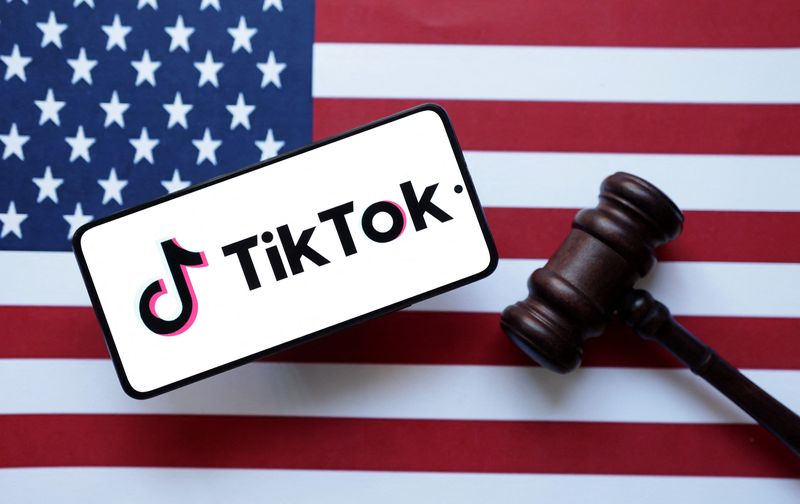WASHINGTON (Reuters) – A U.S. federal appeals court docket is predicted to rule by Dec. 6 whether or not to uphold a regulation requiring Chinese language-based ByteDance to divest its common quick video app TikTok within the U.S. by early subsequent 12 months or face a ban.
President-elect Donald Trump has mentioned he won’t permit TikTok, which is utilized by 170 million People, to be banned.
Beneath are a number of eventualities on how a three-judge panel of the U.S. Court docket of Appeals for the District of Columbia may rule.
The District of Columbia Appeals Court docket sometimes points rulings on Tuesdays and Fridays.
COURT UPHOLDS THE LAW
Circuit Judges Sri Srinivasan, Neomi Rao and Douglas Ginsburg are at the moment contemplating the authorized challenges introduced by TikTok and customers towards the regulation that offers ByteDance till Jan. 19 to promote or divest TikTok’s U.S. belongings or face a ban.
The court docket may rule to uphold the regulation, validating the U.S. authorities’s place and sure compelling TikTok to rapidly attraction the ruling to the Supreme Court docket or to the complete District of Columbia circuit.
COURT UPHOLDS THE LAW BUT SAYS IT IS UNFAIR TO TIKTOK
The Justice Division says TikTok beneath Chinese language possession poses a critical nationwide safety menace due to its entry to huge private knowledge of People, asserting China can covertly manipulate info that People devour through TikTok.
The Court docket may rule to uphold the regulation, but in addition say it’s unfair the laws expressly singles out ByteDance and TikTok beneath the Structure’s prohibition of “Bills of Attainder” – legal guidelines that immediately impose a punishment on a particular particular person, entity or class. The court docket may direct the U.S. authorities comply with a course of to doubtlessly certify that TikTok is a nationwide safety menace, giving the app a lifeline or a major delay in a potential ban.

COURT RULES LAW IS UNCONSTITUTIONAL
The court docket may agree with TikTok and ByteDance, who argue the regulation is unconstitutional and violates People’ free speech rights. They name it “a radical departure from this country’s tradition of championing an open Internet.” The Justice Division may attraction to the Supreme Court docket or full appeals court docket panel.




